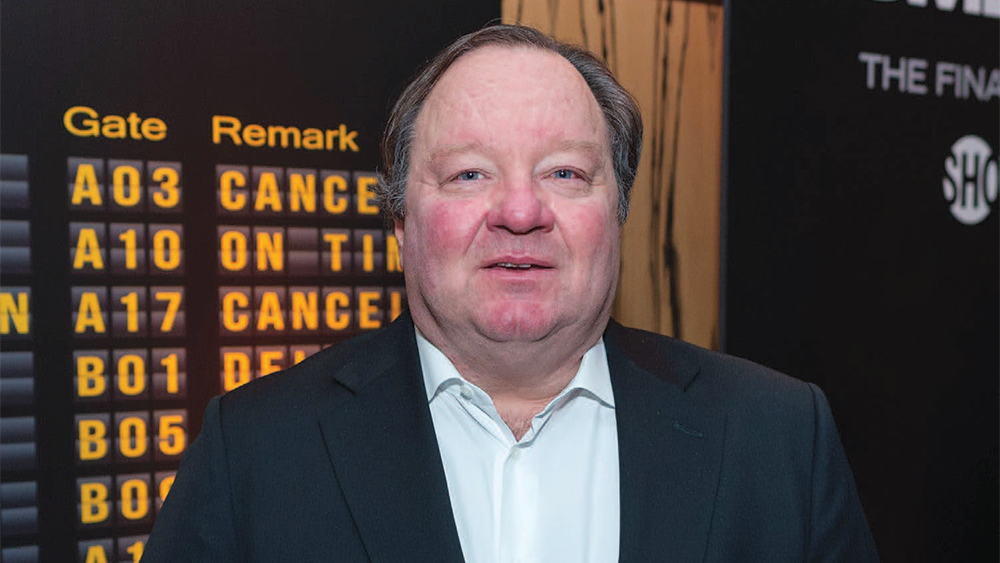ViacomCBS’ Path Ahead Grows Steeper Amid the Coronavirus Pandemic
By Cynthia Littleton
LOS ANGELES (Variety.com) –
ViacomCBS has come to a crossroads, again.
The company that has endured more drama in the C-suite in recent years than any of its larger rivals was already under pressure this year to prove it could muster a comeback in a big way.
Now, with the black swan named coronavirus roiling the waters, leaders of the newly enlarged conglomerate have to manage that comeback in a wildly different business environment. The coming months will test the mettle of CEO Bob Bakish and his newly integrated management team of Viacom and CBS Corp. executives. The social and economic devastation caused by frantic response efforts started almost three months to the day after Viacom and CBS Corp. closed their long-awaited remerger on Dec. 4. The newlyweds didn’t even get a one-quarter honeymoon before hard times hit.
For sure, isn’t the only media company looking at unpredictable headwinds for the rest of 2020, if not a far longer period. Discovery Inc. and AMC Networks are seen as vulnerable to obsolescence as the media marketplace undergoes seismic shifts wrought by digital distribution and the rise of streaming. Investors were already worried about how traditional cable network players would navigate the transition to an on-demand arena. Now analysts that were plotting out earnings declines from core sources like cable affiliate fees on a three- to five-year timetable are sounding the alarm about that process speeding up significantly in a recessionary business environment. For ViacomCBS, the situation is complicated by a high debt load, including obligations of $1.4 billion coming due in 2021.
“Shareholders of stocks like [ViacomCBS, Discovery and AMC Networks] own underlying assets that rely almost entirely on an old business model with both severe adverse structural forces and cyclical risk, as well as the preexisting condition of overly extended balance sheets,” wrote Sanford Bernstein Co. analyst Todd Juenger in a March 26 report.
ViacomCBS did get an important vote of confidence amid the coronavirus crisis last week when it raised $2.5 billion in debt underwritten by Goldman Sachs and other top banks. Some of that cash will be used to refinance the debt that comes due in 2021.
ViacomCBS stands taller in this group because of its size — large enough to still be a media giant but small compared with Disney and Comcast, let alone Amazon and Apple — and its legacy. CBS, Paramount Pictures, MTV, Nickelodeon, Comedy Central, Showtime, BET Networks: These have long been pillars of the TV ecosystem. CBS for so many years was the biggest of the Big Three networks.
Before the scope of the pandemic crisis became clear, Bakish was on a charm offensive with Wall Street to explain his vision for revving up ViacomCBS using proverbial post-merger math: to make one plus one equal more than two. As a longtime Viacom business executive who was a management consultant before that, Bakish speaks fluent Wall Street. He knows what investors want to hear, and he knows the timetable by which his efforts will be judged. In recent weeks, Bakish has outlined detailed operational plans for a range of the company’s commodities.
“We have an incredible asset collection at ViacomCBS. That asset collection is allowing us to both generate free cash flow today principally through our linear businesses while simultaneously using that to build asset value including in streaming,” Bakish said March 4 at Morgan Stanley’s Technology, Media and Telecom investor conference in San Francisco.
“We are a core solution in video in the U.S. We are a core solution in advertising in the U.S. We have a tremendous platform to build outside the U.S.,” he continued. “One of the powerful things about this deal was you took Viacom’s operating footprint outside the U.S.; CBS didn’t really have one. And then you add more content to that and you can use that to grow share in both linear and drive streaming.”
The other asset that ViacomCBS has that should prove invaluable at this moment is one that has often been seen as a negative from an investment point of view: a controlling shareholder. Shari Redstone, ViacomCBS chairman and president of parent company National Amusements, has ironclad voting control of the company, as she has flexed more than once over the past few years.
Without the influence of a controlling shareholder, ViacomCBS might well be vulnerable to vulture buyers looking to scoop up name-brand assets on the cheap. A more than 50% plunge in stock value since 2016 can wear out the patience of even the most long-term investors. The most important lifeline that ViacomCBS receives in this crisis may be the gift of time to get that comeback on track from a benevolent boss.

